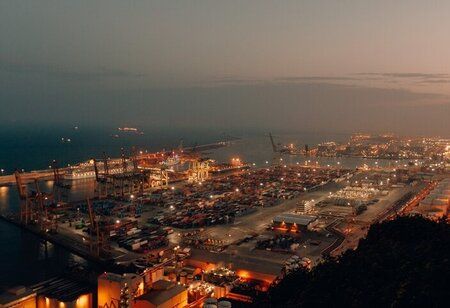
The world's two biggest economies still seem to be working out the guidelines for how to compete with one another, even as Treasury Secretary Janet Yellen prepares to visit a China that is keen to avoid an outright confrontation with the US.
Tensions exist because the Chinese government is supporting the production of solar panels and electric cars at the same time as the US government is increasing its own funding for those high-tech industries. Trade disputes, TikTok ownership, computer chip access, and national security concerns are all risks to the partnership, which has grown to be closely monitored.
Renowned economist and former head of the Federal Reserve Janet Yellen, 77, outlined for reporters the concerns she plans to bring up with her Chinese colleagues over the course of her five-day tour. Yellen is traveling to Beijing and Guangzhou to meet with state authorities and prominent figures in finance. Vice Premier He Lifeng, Governor Pan Gongsheng of the Chinese Central Bank, former Vice Premier Liu He, executives of American companies doing business in China, college students, and local leaders are among the people she will be meeting.
"The Biden administration's efforts over the last year to stabilize the relationship are clearly working, but the main friction points all remain unresolved and will likely challenge the relationship for the foreseeable future," stated Jude Blanchette, a China expert at the Center for Strategic & International Studies.
"Considering the potentially disastrous outcomes of the relationship truly going south, a'managed rivalry' may be the best we can hope for for the time being," he stated.
Yellen stated last week that Beijing's expanded output of solar energy, electric cars, and lithium-ion batteries poses hazards to productivity and the expansion of the global economy. She also wants to inform her colleagues that China is flooding the market with green energy, which “distorts world prices."
More than 20 years ago, China started to become more prominent in the world economy by exporting low-cost items that attracted American customers, displacing manufacturing employment in many of those consumers' hometowns. Numerous manufacturing towns gradually declined as a result of research conducted by economists David Autor, David Dorn, and Gordon Hanson into the "China Shock," which in certain situations also increased political unrest.
However, a few analysts believe that a trade war to create environmentally friendly goods might be advantageous.
According to Shang-Jin Wei, a professor of Chinese management at Columbia University, a subsidy war would ultimately encourage customers in both nations to purchase more environmentally friendly goods, which is the Biden administration's goal.
A U.S. duty on EV imports, on the other hand, may make EVs more expensive domestically, which would be counterproductive in terms of encouraging a green transition.
Yellen will be traveling from April 4–9.It is meant to be a follow-up to Yellen's visit to China in July of last year, which led to the establishment of two economic working groups between the finance departments of the two countries in an effort to reduce tensions and strengthen relations.
However, this visit coincides with an election year in which both Democrats and Republicans are talking tougher about China. They are criticizing China's ownership of the popular social media app TikTok, its record on human rights violations and censorship, and their deep mistrust of recent espionage activities like hacking and the use of spy balloons.
Professor Scheherazade S. Rehman of George Washington University's School of International Business, Finance, and International Affairs stated that although "everything is going to be sharper because it's an election year, the U.S. and China are in a symbiotic trading relationship and ultimately need each other."
One of the main commercial partners of the United States is China, and in recent years, the two countries' economic rivalry has grown. On Wednesday, Yellen emphasized that the US is not interested in cutting its ties with China.
There will also be discussion on China's backing of Russia during its ongoing invasion of neighboring Ukraine. Trade between China and Russia has surged as a result of the sanctions imposed by the United States and its allies on Russian politicians and whole economic sectors, including manufacturing, banking, and oil production.

